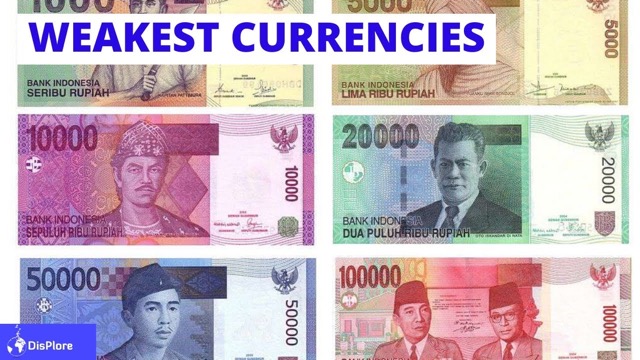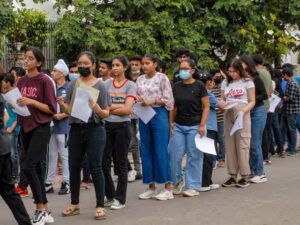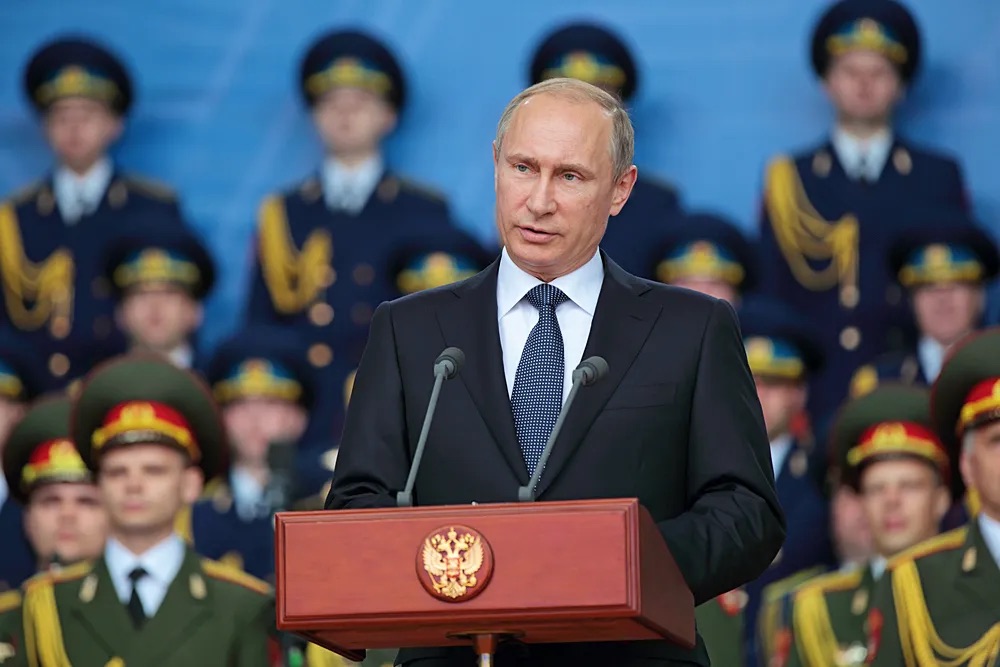Weakest Currencies In The World When people think about the strongest currencies in the world, the U.S. dollar is often the first currency that comes to mind. This is because it is one of the most widely traded currencies globally. However, contrary to popular belief, the U.S. dollar is not actually the strongest currency. In fact, that title belongs to the Kuwaiti Dinar (KWD). It’s hard to imagine a country where just INR 2,000 can turn you into a millionaire or where INR 500 can be valued at several lakhs. There are even countries where going on vacation won’t be a financial burden.
Outlines Of Guide
ToggleHow are Overseas Currencies Priced?
Currency trading always involves pairs of foreign or overseas currency. For example, one might buy Indian rupees using Vietnamese dong or Iraqi dinar. This means that currencies are always priced in relation to another currency, which is referred to as the exchange rate. There are two types of currencies: floating and pegged. Floating currencies have values that fluctuate based on supply and demand, while pegged currencies have a stable value that is agreed upon. The exchange rate has an impact on the prices of goods and services in a foreign currency. For instance, if the Indonesian rupiah weakens against the rupee, a holiday in India would cost more when paid in rupiah.
What Are The Top 10 Cheapest Currencies In The World 2024?
- Iranian Rial (IRR) 1 INR = 505 IRR.
- Vietnamese Dong (VND) 1 INR = 292 VND.
- Sierra Leonean Leone (SLL) 1 INR = 270 SLL.
- Lao or Laotian Kip (LAK) 1 INR = 245 LAK.
- Indonesian Rupiah (IDR) 1 INR = 187.50 IDR.
- Uzbekistani Som (UZS) 1 INR = 147.14 UZS.
- Guinean Franc (GNF) 1 INR = 103 GNF
- Paraguayan Guarani (PYG) 1 INR = 87 PYG
- Ugandan Shilling (USH) 1 INR = 45 UGX
- Iraqi Dinar (IQD) 1 INR = 15 IQD
1. Iranian Rial (IRR) 1 INR = 505 IRR
The Iranian rial tops the list of the cheapest currencies in the world. The fall in the value of the currency can be explained by various factors. To begin with, the termination of the Islamic Revolution in 1979 was followed by foreign investors’ withdrawal from the country. The nuclear program and the Iran-Iraq war also played a huge part in causing financial distress along with other political unrest in Iran.
2. Vietnamese Dong (VND) 1 INR = 292 VND
The country has long followed a centralized economy. Although the country embarked on a path of forming a market economy, it still has a long road to walk. The currency is highly devalued currently but the chances are high of the currency improving considering the improvement in the economy.
3. Sierra Leonean Leone (SLL) 1 INR = 270 SLL
Sierra Leonean Leone is an African currency that is highly affected by poverty. Africa has had a history of financial scandals, corruption and conflicts including a heinous civil war in the western African region. All these led to a downfall of the country’s economy and the value of its currency. The Ebola infection added to Sierra Leonean’s woes, and is a constant factor that affects the country’s population that further consumes financial aid.
4. Lao or Laotian Kip (LAK) 1 INR = 245 LAK
The Lao or Laotian Kip is not a devalued currency but a currency that has had a low rate since the time of its introduction in 1952. Over the years the value of the currency has improved. Also, a railway is planned that will connect Beijing to Laos, which might draw investors to this small country. Although it is the cheapest currency, it is a promising one towards improving its value.
5. Indonesian Rupiah (IDR) 1 INR = 187.50 IDR
In the last seven years, the currency has not improved even the slightest. The factors that have brought devaluation of the currency include its decreasing foreign exchange reserves. Given Indonesia is heavily dependent on the export market, the fall of the cost of the commodities has further devalued its currency value.
6. Uzbekistani Som (UZS) 1 INR = 147.14 UZS
The government of Uzbekistan has employed many means to improve the economy of the country. But none of them have proved to be successful. The most recent one is the reformatory measure, so the changes that these measures will bring are yet to be explored in terms of currency value.
The Covid-19 pandemic hurt the economy deeply too. While data suggests that Uzbekistan has resumed internal economic operations starting the third quarter of 2022, the decline in its industrial output has increased the unpredictability in the currency’s future.
7. Guinean Franc (GNF) 1 INR = 103 GNF
Guinea as a country faces corruption and political instability that leads to a weakened currency. The country’s currency value is getting devalued by the passing years.
8. Paraguayan Guarani (PYG) 1 INR = 87 PYG
Paraguay is undergoing a terrible economic downturn as a result of high inflation, a high unemployment rate, increase in poverty and corruption. These factors have left a negative impact on the value of the currency.
9. Ugandan Shilling (USH) 1 INR = 45 UGX
Uganda faced several setbacks under Idi Amin’s governance. The country’s policies including immigration policies have impacted the country’s economy negatively. The impacts still affect the development of the country. However, the last few years witnessed improvement in its value but not more than 5% of the total devaluation.
10. Iraqi Dinar (IQD) 1 INR = 15 IQD
Iraq’s currency, the Iraqi dinar, is issued by the country’s central bank and is subdivided into 1,000 fils. Since the year 1990, inflation has made the film devoid of much value. In the past decade, the country also faced political instability.
Factors That Can Affect The Exchange Rates Of Weakest Currencies
The foreign exchange rate is an essential thing to determine a country’s economic health. The value of the currency depends on it. Let us see the important factors that impact the value of the currencies.
Inflation Rate
Market inflation may impact currency exchange rates. The price of goods and services will gradually rise steadily when inflation is low. When the inflation rate declines steadily, the currency value increases and vice versa.
Recession
Recession affects the country’s economic growth then the foreign exchange market makes no exception to it. During the recession, the interest rates will fall. Foreign capital would be devalued as a result of this. The value of the currency drops when foreign capital is scant and the interest rates are low.
Interest Rate
The higher the interest rate means the value of the currency will go down. It is again an important factor that can affect the exchange rate.
Government Debt
Government debt or public debt is government-owned debt and is a public liability. If one country is facing debt, the chances of having more money are slight with the potential of causing inflation. The foreign investors would be in two minds about investing considering the high inflation which in return would depreciate the value of the currency.
Political Instability
The lack of stability in the government will harm the country’s economic performance as a result the investors will not profit from it. A stable administration attracts many foreign investors. The domestic currency value might be increased by the investment in addition to boosting foreign capital.
Let us see the table below to understand the currency values as per Indian rupees as of May 2023.
| Currency | As per INR 1 Value |
|---|---|
| Iranian Rial | 505 IRR |
| Vietnamese Dong | 292 VND |
| Sierra Leonean Leone | 270 SLL |
| Lao or Laotian Kip | 245 LAK |
| Indonesian Rupiah | 187.50 IDR |
| Uzbekistani Som | 147.14 UZS |
| Guinean Franc | 103 GNF |
| Paraguayan Guarani | 87 PYG |
| Ugandan Shilling | 45 UGX |
| Iraqi Dinar | 15 IQD |
faq’s
How much would the Indonesian Rupiah (IDR) cost per 1 INR?
1 Indian rupee is equal to 187.50 Indonesian Rupiah.
Which is the cheapest currency in the world?
The Iranian rial is the cheapest currency in the world.
Guinean Franc is the currency of which country?
Guinean Franc is the currency of Guinea, a country in West Africa.











































